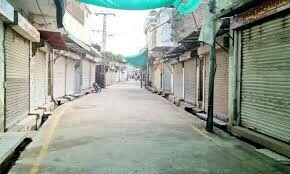
NEW DELHI: Former Indian prime minister Inder Kumar Gujral, who engineered a thaw in the icy relationship with Pakistan during his time in government, died Friday aged 92, the government announced.
“I am deeply grieved to inform the house about the demise of Inder Kumar Gujral, the former prime minister of India. He passed away at 3:31 pm,” Home Minister Sushilkumar Shinde told the lower house of parliament.
Gujral, who served as prime minister in a coalition government from April 1997 to March 1998, was admitted to Gurgaon’s Medanta Medicity hospital 11 days ago with a lung infection.
The former diplomat was born on December 4, 1919 in the city of Jhelum, Punjab (now part of Pakistan) into a family of Congress party workers.
He began his career in politics as a student leader and member of the underground Communist Party of India. He was arrested in 1942 and jailed for his involvement in the anti-colonial Quit India movement.
As premier, Gujral attempted to improve India’s strained ties with Pakistan, saying it was time for both nations to leave the past behind and forge a new relationship.Gujral joined the ruling Congress party after India won independence and rose through the ranks to become minister of information and broadcasting under prime minister Indira Gandhi from 1969-71 and 1972-75.
The soft-spoken Gujral ran foul of the Congress leadership when he refused to censor radio bulletins during the state of emergency imposed by Gandhi in 1975.
He then spent five years working as India’s ambassador to the Soviet Union from 1976 to 1980.
Gujral left the Congress party in the 1980s and joined the socialist Janata Dal, serving twice as India’s foreign minister before being appointed prime minister in a coalition government in 1997.
He resigned from the post in 1998 after the Congress party withdrew its support for the government, forcing mid-term elections. He effectively retired from politics the following year.
The urbane politician was best known for the so-called Gujral Doctrine, an approach to foreign policy based on peaceful accommodation, arguing that India should treat its neighbours with generosity.
As premier, he attempted to improve India’s strained ties with Pakistan, saying it was time for both nations to leave the past behind and forge a new relationship.
Former colleague V. Narayanasamy, a minister in the prime minister’s office told NDTV news channel, “he was a very learned person. I was lucky to have worked with him…will always remember him.”
Gujral is survived by two sons, Naresh and Vishal. His elder son Naresh is a member of the Punjab-based Shiromani Akali Dal party and was elected to the upper house of parliament in 2007.
Gujral’s brother Satish ranks among India’s most prominent artists and architects.















































Dear visitor, the comments section is undergoing an overhaul and will return soon.